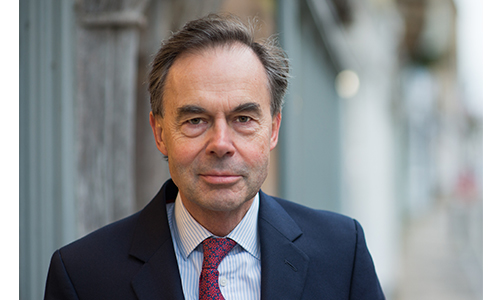Church House Joint Chief Investment Officer, James Mahon explains why 2023 ended much better than expected.
2023 started with a US secondary banking crisis (Silicon Valley Bank et al) that then spread to Europe and took down Credit Suisse. Inflation continued to dominate the news for a long time although it turned out that it had peaked everywhere in October 2022. But that didn’t stop the central banks from acting tough and continuing to ratchet up their base interest rates.
UK inflation was slower to react to treatment than elsewhere, for a while it felt distinctly ‘sticky’, but it succumbed too and by November was back below 4% and much more in line with America and Europe. The US Federal Reserve was the first to ‘pause’ their rate increases in the summer, with the Bank of England close behind. The European Central Bank carried on increasing rates until the autumn, probably too much too late, but they were the slowest to get going back in 2022.
Geo-political events provided an unpleasant backdrop as the war in Ukraine dragged on, China and Taiwan resurfaced as a major concern and the Israel/Hamas conflict escalated. It does appear that the sheer number of these events is likely to lead to a(nother) year of uncertainties and, of course, 2024 brings elections... The US Presidential Election in November seems bound to dominate the second half of 2024, assuming Donald Trump is allowed to run and wins the Republican nomination, the implications for US democracy and the war in Europe could be profound.
Despite all the gloom, 2023 turned out much better than had been expected at the beginning of the year when there were widespread forecasts of a coming recession. The international economy has displayed remarkable resilience despite the inflation, the aggressive interest rate increases, supply chain problems and war. There is a good chance that the US Federal Reserve has achieved a ‘soft landing’ without major job losses on either side of the Atlantic.
Continuing in this brighter vein, the price of oil has come back down to lower levels again, along with Natural Gas after Europe (creditably) managed to wean itself further off Russian gas (see opposite). With the falls in inflation, we would expect the central banks to start reducing interest rates again in the spring, bringing relief to many borrowers both private and corporate.
It was right for us to say that investment opportunities really did abound when we were writing in October. November and December saw strong recoveries in the Gilt and fixed interest markets and recovery/gains for stock markets as the view that central banks had gone far enough, and the next moves would be down, gained traction. I hope that 2024 can provide a similar pleasant surprise for economies and the investment markets, and at the moment it does look encouraging but, elections, elections, elections…
The full Quarterly Review is available here.
January 2024
Important Information
The contents of this article are for information purposes only and do not constitute advice or a personal recommendation. Investors are advised to seek professional advice before entering into any investment arrangements.
Please also note the value of investments and the income you get from them may fall as well as rise, and there is no certainty that you will get back the amount of your original investment. You should also be aware that past performance may not be a reliable guide to future performance.
How would you like to share this?

